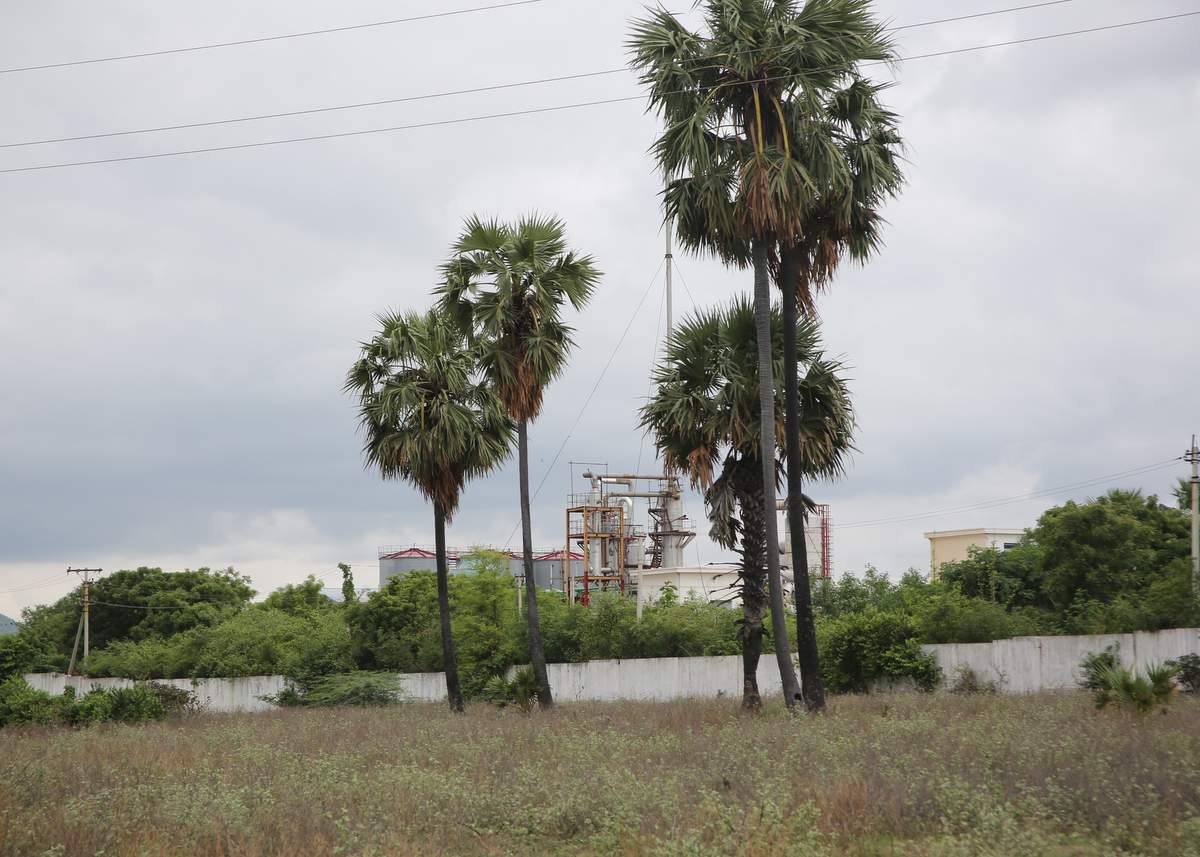Amnesty International has joined villagers in Sagaing Division’s Salingyi Township in calling for the relocation of a sulfuric acid factory causing health and environmental problems.
In May, newly elected municipal authorities in the village of Kangon declined to renew the factory’s annual license amid a growing outcry over pollution from the factory. However, after just one month of suspended activity, the factory has resumed its operations.
“We are not calling for the factory to be closed but for the factory to be relocated and for the company and the government to take the concerns of the villagers seriously,” Mark Dummett, a business and human rights researcher for Amnesty, told DVB following the release of a statement by the group on Wednesday.
The emissions from the Mogyo Sulfuric Acid Factory, built in 2007, have damaged crops and caused respiratory, skin and eye problems, villagers say. The factory supplies sulfuric acid to two copper mines, the Letpadaung and the Sabetaung and Kyisintaung (S&K) mines, in a joint venture between Union of Myanmar Economic Holdings Limited (UMEHL) and China’s Wanbao Mining.
In 2013, Aung San Suu Kyi led a commission which recommended an investigation into the factory’s operations and concluded that the factory had been built without securing permission from local authorities.
It is a criminal offense in Burma to operate a factory without permission but the government has so far not investigated the matter further.
“The authorities must also investigate potential breaches of the Factories Act by UMEHL from 2007 to 2013,” added Dummett, noting that the military-owned UMEHL did not obtain permission to operate the factory until July 2013.
“It seems from the way this company operates that it’s prepared to operate above the law, or it has certainly done so in the past,” said Dummett. According to a local official, a central government body is allowing the factory to run, despite the lack of a license.
[related]
Residents of Kangon told Dummett during a recent visit to the area that when the factory resumed operations on 15 June, the air became so polluted that parents of students at the local high school stopped their children from attending school. The factory sits within 50 metres of the school.
Amnesty also said that UMEHL should be required to conduct adequate environmental and social impact assessments in consultation with affected people before it moves the factory to a new location.
“The Myanmar government must also ensure that any negative impacts caused by the factory are fully assessed, disclosed and remediated,” said Dummett.



